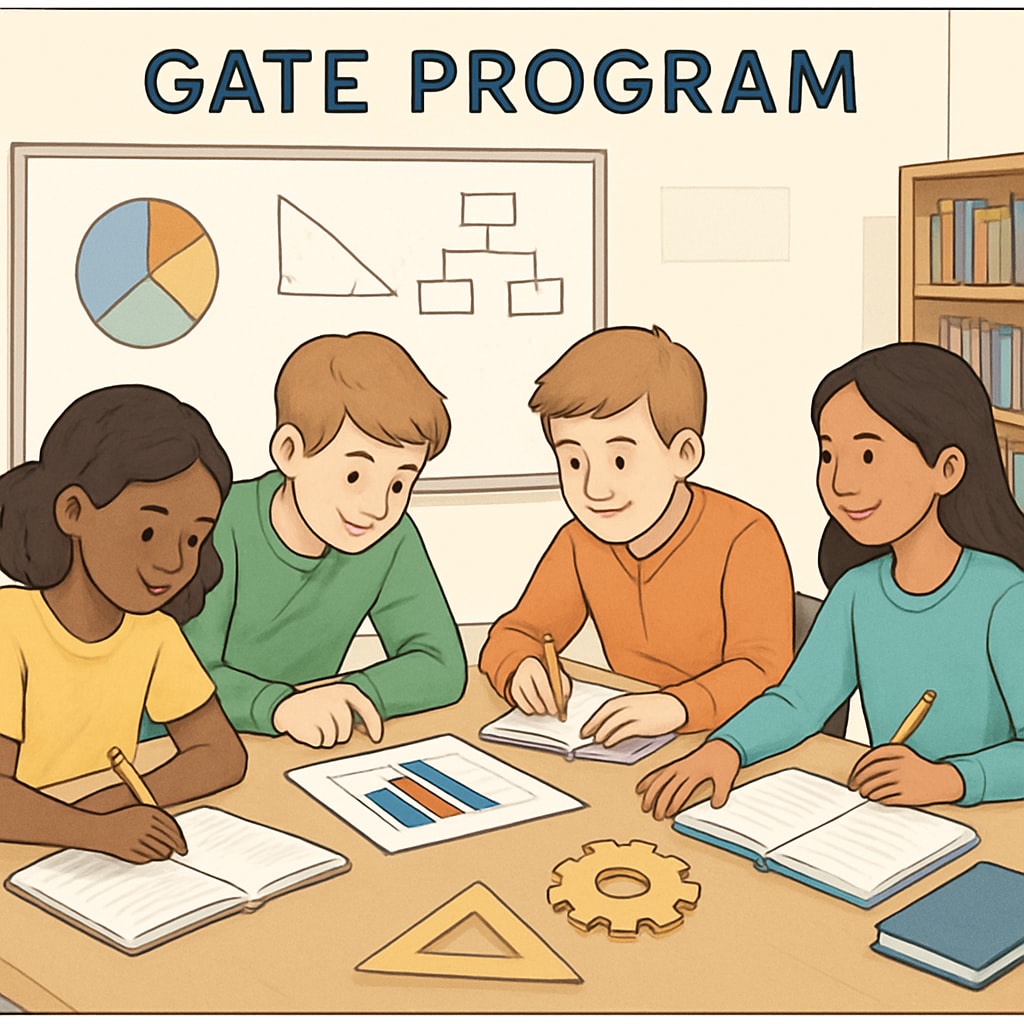When children demonstrate exceptional academic abilities beyond their age group, traditional education systems often struggle to provide the right level of stimulation and support. Gifted students, for example, may feel unchallenged in standard classrooms, leading to disengagement or even boredom. To ensure their intellectual growth, strategies such as grade-skipping, leveraging educational resources, and exploring GATE (Gifted and Talented Education) programs can provide much-needed challenges. This article explores how parents and educators can help gifted students thrive without overwhelming their families.
Understanding the Needs of Gifted Students
Gifted students often possess an intense curiosity, a rapid learning pace, and a deep understanding of complex subjects. However, these traits can also make them feel isolated in traditional classrooms where the pace of teaching may not match their capabilities. Recognizing their needs is the first step toward providing the right support. For instance, teachers and parents can identify signs of under-stimulation, such as frequent complaints about being bored or a decline in interest in schoolwork.
To address these issues, educators should consider strategies that go beyond standard teaching methods. Tailored educational plans, such as curriculum compaction (removing already mastered content) and enrichment activities, can help maintain a balance between challenge and engagement.

Exploring Options: GATE Programs and Grade-Skipping
Programs like GATE are designed specifically to meet the needs of academically advanced students. These programs provide specialized curricula that allow students to delve deeper into subjects they are passionate about. For example, GATE students might engage in project-based learning or interdisciplinary studies that integrate science, technology, and the arts. According to the Britannica article on gifted child education, these programs often foster creativity, critical thinking, and collaboration among high-achieving peers.
Another common option is grade-skipping, which allows students to move ahead to a level that matches their academic abilities. While this strategy can be highly effective, it requires careful consideration. Parents and educators must assess the child’s social and emotional readiness alongside their intellectual capabilities. For some, skipping grades can lead to a sense of achievement and renewed enthusiasm for learning. For others, it may create challenges in adapting to older peer groups.

Leveraging Educational Resources for Personalized Learning
In addition to formal programs, various educational resources can help gifted students thrive. Online platforms, such as Khan Academy or Coursera, offer advanced courses in mathematics, science, and the humanities. These resources allow students to explore topics that interest them at their own pace. Additionally, local libraries and community centers often host workshops and activities tailored for high achievers.
Parents can also work with schools to develop Individualized Education Plans (IEPs) for their children. These plans are customized to meet the unique needs of students, ensuring that they remain challenged in their learning journey. For example, an IEP might include opportunities for independent research projects or participation in regional academic competitions.
Balancing Support with Emotional Well-Being
While academic advancement is important, the emotional well-being of gifted students should not be overlooked. Some students may face pressure to constantly excel, leading to stress or anxiety. Therefore, fostering a supportive environment at home and in school is crucial.
Parents and educators can encourage open communication, allowing students to express their feelings and concerns. Additionally, providing opportunities for social interaction with like-minded peers can help gifted students develop a sense of belonging. Organizations like the National Association for Gifted Children offer resources and networks for families navigating the complexities of gifted education.
Conclusion: Unlocking Potential with the Right Approach
Gifted students represent a unique opportunity to cultivate future innovators, leaders, and thinkers. By leveraging strategies such as GATE programs, grade-skipping, and personalized learning resources, parents and educators can ensure these students are both challenged and supported. Ultimately, the goal is to create an environment where gifted children not only excel academically but also develop emotionally and socially, preparing them for a well-rounded future.
Readability guidance: The article maintains a clear structure with short paragraphs and frequent use of transition words. Lists have been used where applicable, and long sentences have been minimized to ensure readability. Passive voice is used sparingly, and care has been taken to balance technical terms with accessible language.


